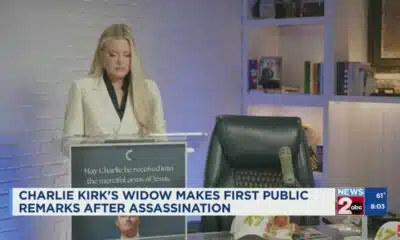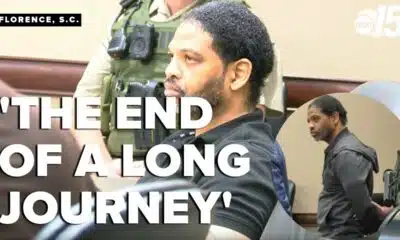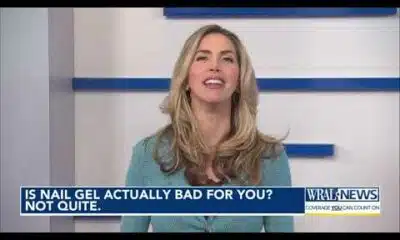News from the South - Texas News Feed
East Texans grapple with closing schools
“An East Texas community grapples with school closures as education options shift” was first published by The Texas Tribune, a nonprofit, nonpartisan media organization that informs Texans — and engages with them — about public policy, politics, government and statewide issues.
Subscribe to The Y’all — a weekly dispatch about the people, places and policies defining Texas, produced by Texas Tribune journalists living in communities across the state.
LUFKIN — Kurth Primary’s campus was quiet as parents pulled their cars into line to pick up their kids on Wednesday, the last day of school. The peace didn’t last long. As noon approached, teachers began helping kids to their parents’ cars for the last time. Kids waved goodbye to their friends and teachers.
Wednesday wasn’t just the last day of the school year at Kurth. It was the last day, for the immediate future, the school will be open at all. The Lufkin Independent School District board earlier this year voted to close it and another school, Coston Elementary.
Jupiter Collins, 7, had big plans for the lake over Memorial Day weekend, she said as she waited to crawl into her dad’s car. As excited as she is for her summer plans, Jupiter is also nervous about going to a new school next year.
“Because I’ll have new people there, and I won’t know them,” Jupiter said.
Jupiter’s friend, Nicole, will be going to Willie Mae & Ecomet Burley Primary School with her next year, but she doesn’t know about anyone else. Caleb Collins assured his daughter that several teachers would also be making the move with her, and more than likely, several of her friends too.
Jupiter’s anxiety is part of a wave of emotions washing over this East Texas community as it grapples with the closure of two schools for the first time since 1978.
[Private school vouchers are now law in Texas. Here’s how they will work.]
Schools are more than brick and mortar in Deep East Texas. They are the places where students experienced historic events with their peers. They are a common ground for generations of families who walked their halls. They are evenings spent performing plays and days spent taking tests and playing tag at recess.
That made the decision to close the decade-old schools that much harder, school leaders said.
The board closed the schools due to declining enrollment in the East Texas district. The last few months have been spent deciding where the dislocated students, teachers and staff would go.
Lufkin ISD lost about 1,600 students to other nearby school districts and independent charter schools over 15 years. The district now faces more competition in the years ahead. The Texas Legislature in early May approved a private school voucher program that will allow families to use tax dollars to send their students to private schools.
Lufkin school leaders added that stagnant school funding from the state and a disproportionate staffing to student ratio made it nearly impossible to keep the schools open. As the end of yet another legislative session looms heavy over the state, financial support for public education again hangs in the balance.
Lufkin Superintendent James Hockenberry said he isn’t waiting for the state to make things better. Lufkin needs to pay its teachers and staff better, and he intends to make the most out of the numerous tough choices he faced in his first year as superintendent.
“We had to grow smaller to become stronger, better and more relevant in the educational realm,” Hockenberry said. “We’re shrinking to build strength.”
/https://static.texastribune.org/media/files/40c49b775e46209ad1cbe9e929d41b5d/0506%20Coston%20Elementary%20JA%20TT%2012.jpg)
Saying goodbye
In a last farewell, community members spent a May evening walking the halls of Coston Elementary and Kurth Primary schools. Teachers opened their classrooms and let visitors wander through and reminisce about the many years those rooms facilitated education.
Amy Rhoades’ connection to Coston runs deep, her mother was the school nurse at Coston in the 1970s. It was where she taught fourth and fifth graders for the last 19 years of her 37-year career. Coston was also where she taught her first year out of college before moving on.
The whiteboard Rhoades normally used to teach was removed from her classroom to expose the original chalkboard that was used when Coston first opened in 1958. Her students had asked that she let them use it before the campus closed for good, and she took the opportunity to teach them about persuasive letters. Each child wrote Hall a letter advocating for their ability to use the chalkboard.
“We do have a sweet little school,” Rhoades said. “It’s the sweetest school in the district. I understand why we had to close it. The budget problem, and our school is the only one that’s not completely enclosed. And it has the smallest enrollment. It’s no-brainer why we had to do it. It doesn’t make it any easier.”
Shannon Largent meandered around the cafeteria where school yearbooks were laid out. She attended Coston in the 90s and loved the music program that encouraged her to try out for the high school band.
/https://static.texastribune.org/media/files/82acd914ec7bc9471914081d9b19bc30/Coston%20Diptych%20TT%2001.jpg)
“Just walking through here brings back all memories of a time when things weren’t so chaotic and so stressful,” she said.
Rodney Ivy sat alone at a table in the elementary school where he spent some of his most formative years. Now 68, he still recalls the sadness and worry he felt as a 6-year-old learning that President John F. Kennedy was shot in Dallas.
“My teacher came in from outside and she was crying. I thought, man, teachers don’t cry. They make us cry. They don’t cry,” Ivy said. “She told us President Kennedy had been shot and killed. That was a lot of magnitude there for a first grader.”
Tom Brevard and his brother Sam played in the classroom that Tom attended for his last year at Coston. Nearby, their mom, Megan, discussed her boys’ education with a teacher. Tom took it personally that his school was closing, Brevard said.
“It’s a very inclusive school,” Brevard said. “It’s just in their culture here. That’s why I wanted him to come here.”
The boys will be going to Hudson, another public school district nearby, in August. It will be a big change for the family.
Closing a school
Starla Hill, the Coston Elementary School principal, fought for months to keep the campus open. And with quiet resignation and a determination to make the future brighter, she helped her staff pack decades of memories into boxes to move to other Lufkin campuses.
With help from Harmony Hill Baptist Church, teachers and staff spent the last two weeks of school packing up decades of educational materials to move to other campuses in the district.
The decision for Lufkin school district’s board members was not easy, but it was backed by 15 years of declining enrollment and rising costs. The final decision came in February, in front of dozens of teary-eyed Coston and Kurth teachers and staff who packed into Lufkin’s boardroom.
Most of the Coston staff chose to stay with Lufkin and will move to Brandon Elementary School, Hill said.
“I’ll be the principal at Brandon,” Hill said. “I’m excited to be a Brandon Bear. I’m such a planner, so I’m excited to move forward with planning all the great things with the staff there at Brandon Elementary.”
The district made changes beyond just closing campuses. It is also selling the large administration building in downtown Lufkin and relocating to Kurth. It has also reduced the number of staff employed.
About 140 people either gave an early notice they were retiring, accepted other positions that needed to be filled at the district, or chose not to renew their contracts, which allowed the district to cut the position. That’s about 11 percent of the district’s staff.
“When you lose 1,600 kids, your schools are less full, and that was very noticeable,” Hockenberry said. “Then you couple it with the Legislature’s failure to act to fully fund schools, and so you have a perfect storm.”
Lufkin needs to adapt to meet the needs of its community in the modern age, Hockenberry said. Which is why he has turned his focus into what the district can gain by closing these campuses. He has several opportunities in mind, including better pay for teachers and staff and a new alternative school.
One of those opportunities is particularly exciting for Caleb Collins and Jupiter, who excels in science — a STEM elementary school.
The district recently received a $2.5 million School Action Fund grant to establish a Science, Technology, Engineering and Math, or STEM, elementary school.
“We already have STEM in our middle school, and we have a STEM Academy at our high school. This will align perfectly,” Hockenberry said.
The school should open in 2026.
/https://static.texastribune.org/media/files/d1117151ea377215405aa2d804982d3f/0506%20Coston%20Elementary%20JA%20TT%2018.jpg)
First round of TribFest speakers announced! Pulitzer Prize-winning columnist Maureen Dowd; U.S. Rep. Tony Gonzales, R-San Antonio; Fort Worth Mayor Mattie Parker; U.S. Sen. Adam Schiff, D-California; and U.S. Rep. Jasmine Crockett, D-Dallas are taking the stage Nov. 13–15 in Austin. Get your tickets today!
This article originally appeared in The Texas Tribune at https://www.texastribune.org/2025/05/27/east-texas-school-choice-closures/.
The Texas Tribune is a member-supported, nonpartisan newsroom informing and engaging Texans on state politics and policy. Learn more at texastribune.org.
The post East Texans grapple with closing schools appeared first on feeds.texastribune.org
Note: The following A.I. based commentary is not part of the original article, reproduced above, but is offered in the hopes that it will promote greater media literacy and critical thinking, by making any potential bias more visible to the reader –Staff Editor.
Political Bias Rating: Center-Left
The article provides a detailed, empathetic look at the closure of public schools in an East Texas community, focusing on the emotional impact on students, teachers, and families. It highlights issues such as declining enrollment, stagnant state funding for public education, and competition from private school voucher programs. The coverage includes voices from affected community members and school leaders emphasizing fiscal challenges and the need for improved teacher pay and educational opportunities. The narrative aligns with a center-left perspective by acknowledging the problems caused by legislative underfunding and voucher policies while presenting efforts to strengthen public education despite difficulties, without overt political rhetoric or polarizing language.
News from the South - Texas News Feed
Austin becoming FEMA-approved emergency alert authority, planning 1st test alert
SUMMARY: On Monday, Sept. 29, Austin will conduct a test of the Integrated Public Alert and Warning System (IPAWS), becoming a FEMA-approved alerting authority able to send emergency alerts via Wireless Emergency Alerts (WEA) to cell phones and Emergency Alert System (EAS) messages to TV and radio. This coordinated test at 3 p.m. will cover the city across its three counties—Travis, Hays, and Williamson. The alerts will clearly indicate a test and require no action. IPAWS allows authenticated, geotargeted emergency notifications without subscription, enhancing public safety communication. More details are available at ReadyCentralTexas.org and Ready.gov/alerts.
The post Austin becoming FEMA-approved emergency alert authority, planning 1st test alert appeared first on www.kxan.com
News from the South - Texas News Feed
La Niña now expected to last all winter
SUMMARY: For the first time this year, La Niña is now forecast to last throughout the entire winter, with NOAA’s Climate Prediction Center giving it a 54% chance for December-February. Previously, ENSO Neutral was favored for winter. La Niña occurs when sea surface temperatures in the eastern equatorial Pacific are 0.5ºC below average, typically pushing the Pacific Jet Stream north, causing drier, warmer conditions in the southern U.S. and wetter areas in the Pacific Northwest. Last winter, a weak La Niña brought a record warm December but cooler January-February, below-average rainfall, snow in Austin, and more freezes than normal. Another mild La Niña winter is expected for Central Texas.
The post La Niña now expected to last all winter appeared first on www.kxan.com
News from the South - Texas News Feed
Texas high school football scores for Friday, Sept. 12
SUMMARY: Lake Travis dominated Midland Legacy 59-13 in a spirited farewell to the old Cavalier Stadium before renovations force home games to move to Dripping Springs High School. Across Central Texas, notable district wins included Anderson over College Station (37-14), Bowie against Glenn (38-14), and Dripping Springs edging Harker Heights (31-26). High-scoring games saw McNeil top Westwood 70-45, and Hutto defeat Cedar Ridge 63-49. Close contests included Vista Ridge’s 30-29 win over Round Rock and Austin LBJ’s 34-33 overtime victory against Wimberley. The article also features an extensive list of scores from other Texas high school football games.
The post Texas high school football scores for Friday, Sept. 12 appeared first on www.kxan.com
-
News from the South - North Carolina News Feed7 days ago
Reagan era credit pumps billions into North Carolina housing | North Carolina
-
News from the South - Alabama News Feed7 days ago
Amid opposition to Blount County medical waste facility, a mysterious Facebook page weighs in
-
News from the South - South Carolina News Feed6 days ago
South Carolina’s Tess Ferm Wins Miss America’s Teen 2026
-
News from the South - Kentucky News Feed6 days ago
3 states push to put the Ten Commandments back in school – banking on new guidance at the Supreme Court
-
Local News6 days ago
Duke University pilot project examining pros and cons of using artificial intelligence in college
-
News from the South - North Carolina News Feed7 days ago
Powerball surges to $1.8B ahead of Saturday's drawing
-
News from the South - West Virginia News Feed6 days ago
Protesters in D.C. flood the streets demanding an end to Trump’s military deployment
-
News from the South - Virginia News Feed6 days ago
On the record: Winsome Earle-Sears











































